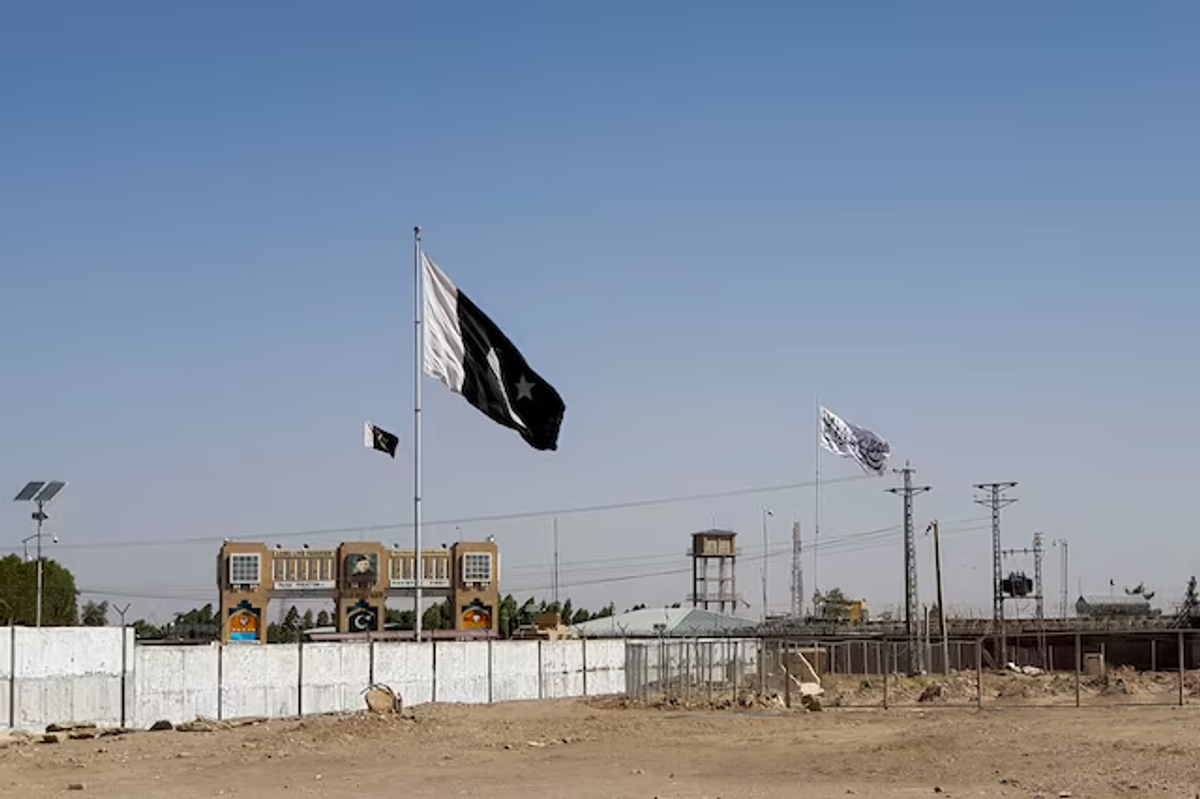Pakistan, Afghanistan fail to reach consensus in Istanbul talks
Senior Pakistani official confirmed that the delegation left Istanbul after peace talks ended inconclusively

Aamir Abbasi
Editor, Islamabad
Aamir; a journalist with 15 years of experience, working in Newspaper, TV and Digital Media. Worked in Field, covered Big Legal Constitutional and Political Events in Pakistan since 2009 with Pakistan’s Top Media Organizations. Graduate of Quaid I Azam University Islamabad.

An international push to de-escalate hostilities between Pakistan and Afghanistan has faltered, as peace talks in Istanbul ended without any tangible progress.
International mediators failed to bridge the growing rift between Islamabad and the Afghan Taliban, despite several days of negotiations.
The dialogue was launched following deadly border clashes in early October that killed several soldiers and civilians on both sides. Turkiye and Qatar stepped in soon after to mediate between the two governments.
The first two rounds of talks in Doha had resulted in a fragile ceasefire and a general understanding to establish a mechanism for verifying compliance. The Istanbul round was aimed at finalizing the details of that verification and monitoring framework.
A senior Pakistani official confirmed that “Pakistan’s National Security Adviser and DG ISI have left the talks. The Pakistani delegation is leaving Istanbul shortly. The talks remained inconclusive.”
Disagreements over security and verification mechanism
According to official and diplomatic sources, the third round - held with facilitation from “friendly mediators” - was primarily intended to address Islamabad’s security concerns, particularly cross-border terrorist attacks originating from Afghan soil.
However, the talks reportedly stalled after the Taliban delegation presented what Pakistani officials described as “irrational and inconsistent demands,” deviating from understandings reached in previous sessions.
“The process is expected to continue to break the deadlock,” the senior official said, adding that despite the impasse, Pakistan remains committed to pursuing dialogue.
“The deadlock was due to the Afghan Taliban, despite the best efforts of mutual friends. Pakistan’s National Security Adviser and the delegation are now headed back.”
Pakistan’s National Security Adviser and Director General of Inter-Services Intelligence (ISI), Lt. General Asim Malik, led the delegation that departed Istanbul late Friday following the inconclusive conclusion of the third round.
Earlier, Pakistan’s Foreign Office confirmed that the dialogue began in Istanbul “with the presence and participation of mediators.” The spokesperson said Islamabad had presented “evidence-based, justified, and logical demands” to end cross-border terrorism and ensure the safety of its citizens.
“Pakistan has made it clear to the Afghan Taliban that it will do all that is necessary to safeguard its nationals,” the spokesperson said. “The mediators fully endorse Pakistan’s stance based on the evidence provided by our side as well as the principles of international law.”
Mediators were reportedly engaged in point-by-point discussions with both sides before the talks came to a halt late Thursday night.
The Foreign Office also warned against misinformation, emphasizing that “any other information being circulated on social media, especially from Afghan accounts, is either pure speculation or deliberate disinformation.”
Setback for regional peace efforts
The inconclusive outcome of the Istanbul talks marks a setback in ongoing efforts to ease tensions between Islamabad and Kabul, which have sharply escalated in recent months amid a surge in cross-border militant attacks targeting Pakistani security personnel and civilians.
Following the talks, Pakistan’s Information Minister Attaullah Tarar expressed appreciation for the mediation efforts by Turkiye and Qatar but underlined Afghanistan’s responsibility to curb terrorism.
“Pakistan is thankful to brotherly countries of Turkiye and Qatar for mediation of talks; onus lies on Afghanistan to fulfill its long-standing international, regional, and bilateral pledges regarding control of terrorism, in which so far they have failed.
Pakistan does not harbor any ill will against the Afghan people. However, it shall never support the Afghan Taliban regime’s measures that are detrimental to the interests of the Afghan people or neighboring countries.
Pakistan shall continue to exercise all options necessary to safeguard the security of its people and sovereignty.”
Officials in Islamabad say Pakistan remains open to further dialogue but stress that the Afghan Taliban must take tangible action against militant groups operating from Afghan territory to restore regional peace and stability.










Comments
See what people are discussing